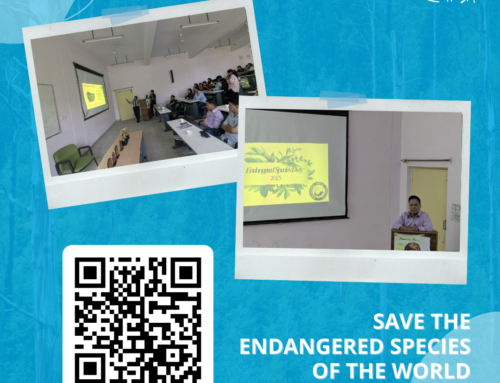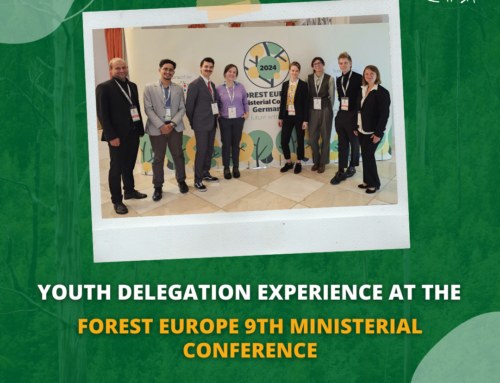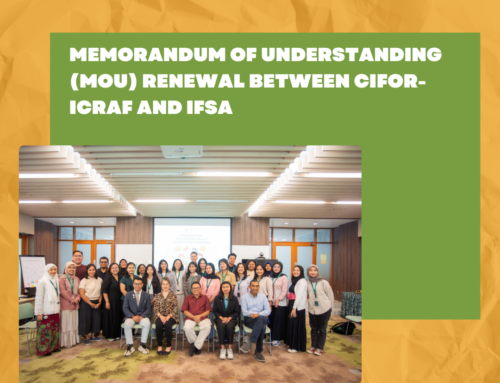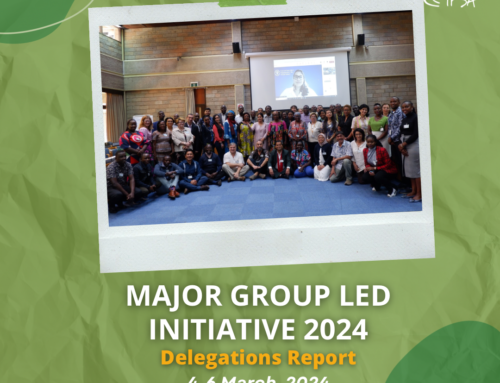Storytelling, Empowerment, and Allyship among FINTA*
Experiences of the IFSA delegation at the Women’s Forest Congress
The inaugural Women’s Forest Congress recently took place in Minneapolis, Minnesota, USA, from 17th-20th October 2022. The Congress was organised to develop strategies and solutions to emerging forestry problems through the lens of women1. Nearly 500 participants from 38 US states, 3 Canadian provinces, and 8 countries of the world came together to embark on this historical moment of US forestry. Women representing academia, industry, government, and non-profit at different stages of their careers connected and discussed how women could shape the future of forestry. One of the major outcomes of the congress is the 2022 WFC Declaration, calling for actions towards more gender equality in the forest and forest products sector.

As the International Forestry Students Association, we marked our presence at the congress through seven delegates – two in-person and five online. Apsana Kafle and Kamana Poudel (Regional Representative from North America) made up the in-person delegation. Theresa Klara Loch, Barbara Öllerer, Kadijatu Sheriff, Clarissa Chimeremeze Enyi, and Baliqeez Adebisi joined remotely. In IFSA, our mission is to empower and enrich forestry students’ education. The IFSA Gender Sub-Commission has advocated for gender equality within the forest sector. Recently, the Sub-Commission has published the IFSA Open Letter on Gender and Forest Education – advocating for gender equality in forest education, a gender-aware learning environment, and strengthening FINTA* within forestry science and practice. The in-person delegates had the great opportunity to broadcast the Open Letter at the Women’s Forest Congress. The participants provided positive feedback, ideas, and suggestions, which will be considered for future steps.
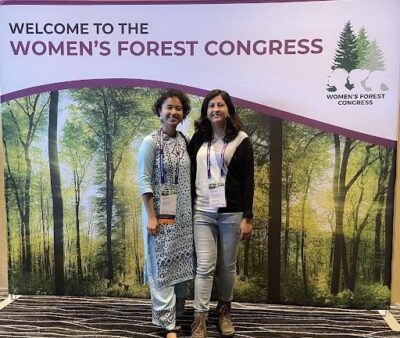
Unlike any forestry congress and conferences, this congress was different: It not only highlighted the importance of diversity and inclusion in forestry but also emphasised storytelling over purely data-driven reports and facts. Women of different ages, colors, ethnic backgrounds, and skills make up an increasingly bigger part of the forestry sector of today. The congress brought them all together to weave plans and strategies for the future of the forest through their own personal and professional experiences, to be allies and support systems.
Several aspects made this congress unique: Firstly, the space that allowed participants to be vulnerable, allocating spaces for creativity, innovation, wellness, and for nursing mothers. Secondly, the ease and approachability of all participants despite differences in the level of career. Thirdly, the confidence with which the participants shared their stories and experiences and thereby inspired each other. The energy throughout the conference was very radiating and amazing. Finally, the fact that the whole conference was organised by FINTA*, who also made up the majority of participants, made it a very special and empowering event, especially in comparison to traditional forestry conventions.
As an international student association, the IFSA participants felt the need for a Congress, which gives a voice and space to FINTA*, should be expanded beyond countries and regions. We would like to see FINTA*, from grassroots to high-level policy, coming together and sharing their unique stories. As a youth, we call for more young FINTA* panelists and speakers to include future foresters and young professionals in the discussion and reflect on their experiences and voices.
1We use the term ‘women’, as it has been the phrase chosen by the Women’s Forest Congress. However, we, as IFSA, encourage to apply a more inclusive language by using the abbreviation FINTA*: Female, Intersex, Non-binary, Trans, and A-gender. The * stands for all those who do not find themselves in any of the letters in the designation and are marginalised in the patriarchal society.
